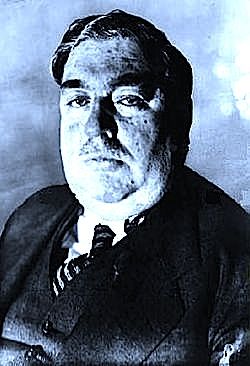Law and Crime
Who Coined “Serial Killer”?
Despite FBI profiler’s claim, he wasn’t the first.
Posted October 11, 2014

I’ve been reading Harold Schechter’s work for years. Whenever I hear that he’s written a book, I know it will be well researched and worth my time. He teaches American Lit and Popular Culture at Queens College at CUNY. From his work, I got my first taste of H. H. Holmes (Depraved), Ed Gein (Deviant), and Jesse Pomeroy (Fiend), among others.
Although Schechter specializes in serial killers, his latest book, The Mad Sculptor, features a charismatic young sculptor who, obsessed with a model, committed a grisly triple murder in Manhattan in 1937. He’s also published The Whole Death Catalog.
Recently, Schechter contacted me to say that he’d discovered what he believes to be the very first time the phrase “serial murder” was used in an English-language true crime book. Although this might seem like just some interesting trivia, to historians, criminologists, and fans of true crime, it’s a big deal.
Ever since Robert K. Ressler stated that he first used the phrase, “serial killer” in the 1970s with the “Son of Sam” case (after hearing “series murder” used in England), researchers have been looking for other places where it’s popped up. One cites a chapter title in Richard Hughes’ 1950 book, The Complete Detective, as the first English language reference to 'serial' murder. Schechter says he’s identified an even earlier source.
I asked him to tell me how he discovered this.
“I was contacted a couple of years ago by Lee Mellor, a young Canadian author of true crime books,” he said. “Lee – whose laid-back, somewhat hippie-ish demeanor belies his energy, ambition, and thoroughgoing professionalism – was about to launch a new publishing venture, a slick online journal called Serial Killer Quarterly. [I blogged about its first issue here.]
“He was writing with an invitation to contribute. I was impressed with Lee's plan – as well as with his offer to actually pay for an article – and agreed to provide a piece on the so-called Austin, Texas "Servant Girl Annihilator" for an issue on unsolved cases. The magazine turned out better than I thought it would. It's an exceptionally handsome e-publication. So, when Lee asked for another essay, I was happy to sign on.
“The piece I'm currently working on deals with Peter Kürten, aka 'The Vampire of Düsseldorf,' one of the twentieth century's most heinous lust-murderers. Edmund Pearson, dean of American true crime writers, rightly points out that Kürten has a serious claim to the title of "worst man who ever lived."
“I'm in the research stage right now. Ordinarily when I work on a case, I like to consult primary source material, but that's impossible here since I don't speak or read German. So I'm doing the next best thing, which is reading the three most definitive English texts: Karl Berg's The Sadist (1932), Margaret Seaton Wagner's The Monster of Düsseldorf (1933), and George Godwin's Peter Kürten—A Study in Sadism (1937).
“During this research, I came upon a fact of which, I'm embarrassed to say, I was previously ignorant: that the term ‘serial killer’ was first used in the 1930s.

“Ernst August Ferdinand Gennat was director of the Berlin Criminal Police. He worked at developing a dedicated homicide squad, the Zentrale Mordinspektion, and by 1931, they were solving nearly 95% of these crimes. Writers like Wagner who covered his work credited Gennat with suggesting the phrase, “serial killer.” He used serienmörder in reference to the case of Peter Kürten, and Wagner translated this as ‘series-murderer.’”
Thanks, Harold, for that "forensic first."
Personally, I think it’s such discoveries that make research so fascinating. You think you know something. You might even be an expert in your field. You’ve been teaching the “facts” all along, and then bang! You find something that overrides what you thought you knew. And now you know something that previous experts apparently didn’t. You’re a discoverer. You’ve broken new ground.
This “hook” keeps me going. Other writers might feel the same.




